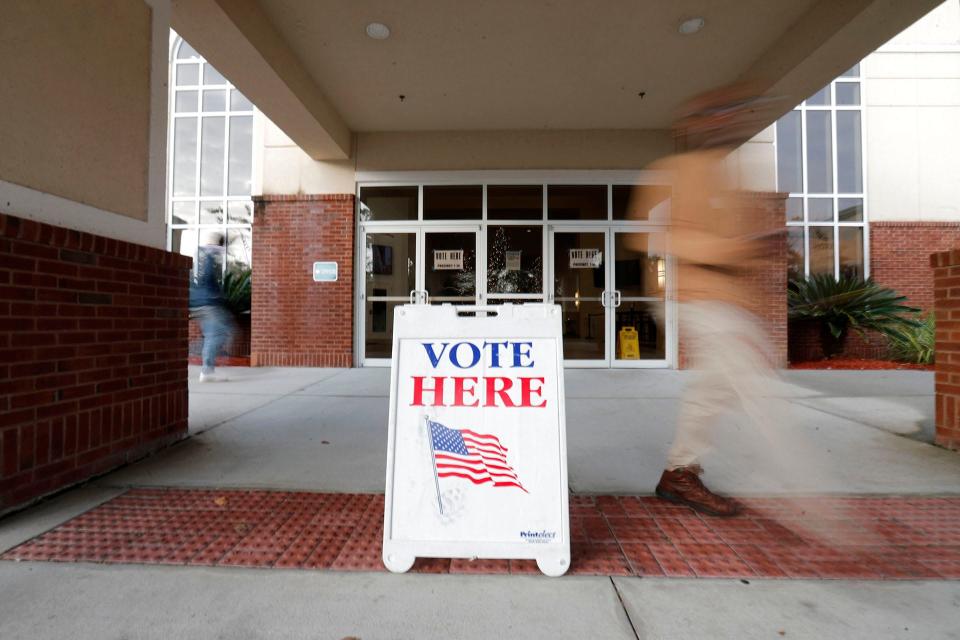Georgia Secretary of State Brad Raffensperger calls for an end to election runoffs
- Oops!Something went wrong.Please try again later.
Georgia Secretary of State Brad Raffensperger on Wednesday called on state lawmakers to end general election runoffs when the Legislature regathers in January.
“Georgia is one of the only states in the country with a general election runoff,” Raffensperger was quoted as saying in a news release. “We're also one of the only states that always seems to have a runoff. I’m calling on the General Assembly to visit the topic of the general election runoff and consider reforms.”
Raffensperger cites the incursion of voting into family holidays along with the strain on local election officials who had general election deadlines, an election audit and the runoff all within four weeks.
ResultsRaphael Warnock defeats Herschel Walker runoff for a full six-year term in the U.S. Senate
U.S. Senate Runoff3 takeaways from Herschel Walker's loss, Raphael Warnock's win
ColumnGeorgia Republicans performed well in 2022 elections. Even so, lessons remain.
Raffensperger included no specific alternatives in the news release, but does say that legislators have a wide range of options.
In late November, the Atlanta Journal Constitution estimated that the runoff cost more than $10 million in just the Atlanta area. The total cost of the Senate runoff in 2021 was $75 million across the state.
The system has also drawn criticism this year from those who say runoffs diffuse the growing power of Black voters in the state, though the Senate runoff between Sen. Raphael Warnock and candidate Herschel Walker drew a record number of early voters.

History of the modern runoff
After Democratic incumbent Sen. Wyche Fowler lost to Republican challenger Paul Coverdell in a 1992 runoff, the General Assembly’s Democratic majority reduced the 50%-plus-one vote requirement to avoid a runoff to 45%. That worked out for the Democrats four years later when the late Max Cleland won the seat of retiring Sen. Sam Nunn with more than 45% of the vote but less than 50%.Republicans responded to that 1996 loss when the GOP won control of the legislature in 2004. During their first legislative session in power, Republicans changed the requirement back to the 50%-plus-one threshold.
This story includes reporting from Dave Williams, bureau chief of Capitol Beat News Service
This article originally appeared on Augusta Chronicle: GA election runoff system to end, says Secretary State Raffensperger

